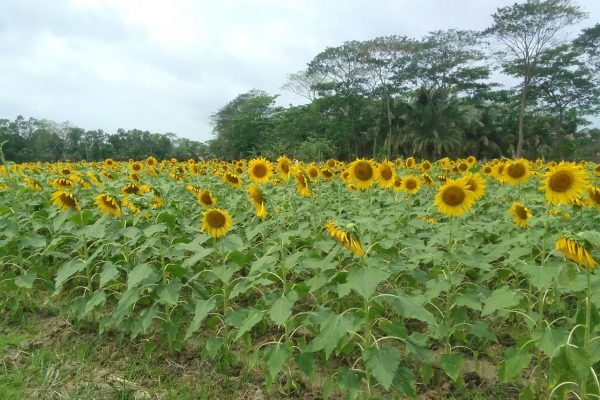Reading Time: 3 minutes
We need to act now and we need to act fast. Across the world, people living in poverty are struggling to feed their children as food insecurity continues to rise sharply.
COVID-19 has devastated the livelihoods of millions of people across the globe. BRAC International carried out a first round of food and income security assessment in the first week of April, covering eight countries in Asia and Africa where BRAC operates. In the third week of April, BRAC conducted a second round of assessment on food and income security, this time covering nine countries – Afghanistan, Nepal, Myanmar, Philippines, Uganda, Tanzania, Rwanda, Liberia and Sierra Leone.
The objective was to see changes in some of the key variables and get a snapshot of the current situation. A total of 2,475 randomly selected participants were interviewed over the phone using a short and structured questionnaire. The second assessment also helped to draw a comparison between the two surveys.
The findings mainly show a sharp rise in the percentage of the population who completely lost their income or are experiencing a significant loss in their income flow.
KEY FINDINGS
Impact on income
In addition to health shocks, COVID-19 has caused a severe economic shock for people living in low-income countries. Similar to the findings from the first round of the survey, this assessment shows a significant negative impact of COVID-19 on people’s income and livelihoods across all nine countries. The percentage of the population reporting a “complete stop” or “a lot of reduction in income flow”, has increased significantly since the first assessment. The changes are most evident in Nepal, Tanzania and Liberia.
Figure 1. Trend in income reduction over the two assessments

AFG: Afghanistan ; NPL: Nepal ; PHL: Philippines ; MMR: Myanmar ; TZA: Tanzania ;
UGA: Uganda ; SLE: Sierra Leone ; LBR: Liberia ; RWA: Rwanda
Households who rely on businesses and informal work have experienced the highest drop in income. This was most evident when the latest findings were compared to the first round of the assessment. The respondents who reported “a complete loss in income” who rely on businesses increased significantly by 1.5%.
Figure 2. Weekly trend in main source of income (A comparison between the two assessments)

Impact on food security
Risks of food insecurity is rising. A comparison study between the two assessments show an increasing trend of reduction in food consumption across all BRAC International countries. The most drastic change is observed in the findings from Liberia where the percentage of the population who reported “a lot of reduction” in food consumption has significantly increased from the first round (52% vs 84%). The situation is equally grave in the Philippines, Uganda, Sierra Leone and Rwanda.
Food stocks in households are depleting. In Sierra Leone, 90% of the respondents reported that they could barely sustain a week with the available food stock (Figure 3). Income loss coupled with increase in food prices (reported almost universally across all countries) makes food items inaccessible by those living in vulnerable situations.
Figure 3: How long can people meet their food needs with their present stock?

Female-headed households are more vulnerable to food insecurity
The findings of the first round showed that female-headed households have higher food stock than male counterparts. However, the second round of the survey reveals a contrasting picture. In Uganda male-headed households have on average eight more days of food stocked than female-headed ones. The trend is similar in the Philippines, Myanmar and Tanzania.
People’s capacity to cope is decreasing
Borrowing money and use of savings were mentioned as the two most common coping strategies. In the Philippines (92%) borrow money to cope with the ongoing situation. A small percentage also mentioned selling of assets, and 21% responded they would not be able to cope at all if the situation persists.
People need food more than any other type of support
“Food and/or cash support” remains as the highest need, followed by access to healthcare. On the other hand, findings state that information regarding the virus is not a priority at the moment as almost 90% of the respondents reported to have access to adequate information.
Economic accessibility to food is the main issue
Despite the lockdown, markets for staple food are still functional, people are able to buy food and other necessary goods, if they have the money.
Impacts on other aspects of lives
Violence seems like an emerging concern in some countries as 33% of the respondents in Uganda and 23% in Afghanistan reported increased violence the emergence of the pandemic.
CONCLUSION
The findings of the second assessment suggest that a loss of income and food insecurity are the two most pressing needs which must be tackled immediately. These interventions need to be coupled with dispute resolution and community empowerment strategies to reduce domestic or gender-based violence. It seems that cash transfer over mobile money platforms can be an effective solution since the market for food and non-food essentials is still relatively functional.
Kazi Eliza Islam is an associate director, monitoring and programme quality, BRAC International.





